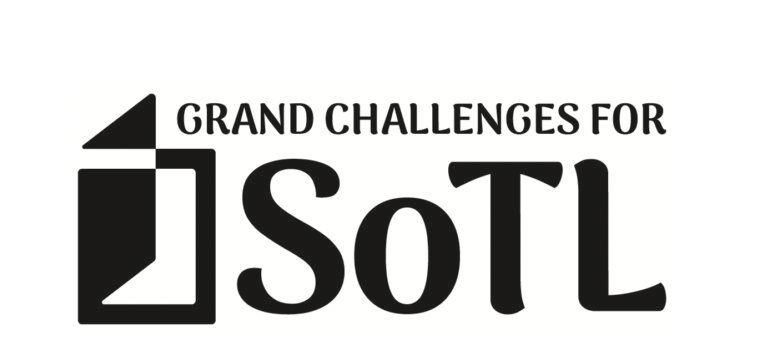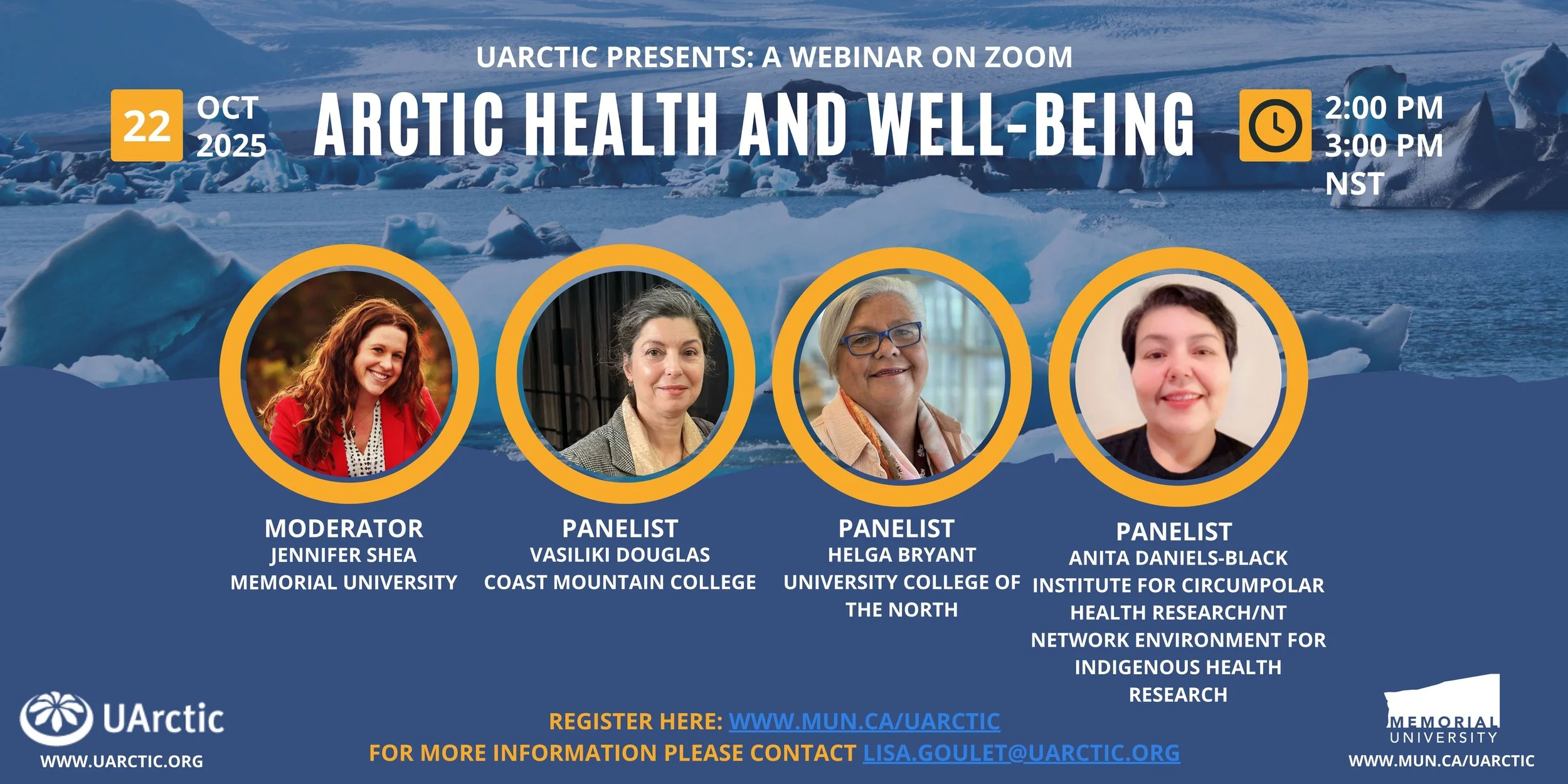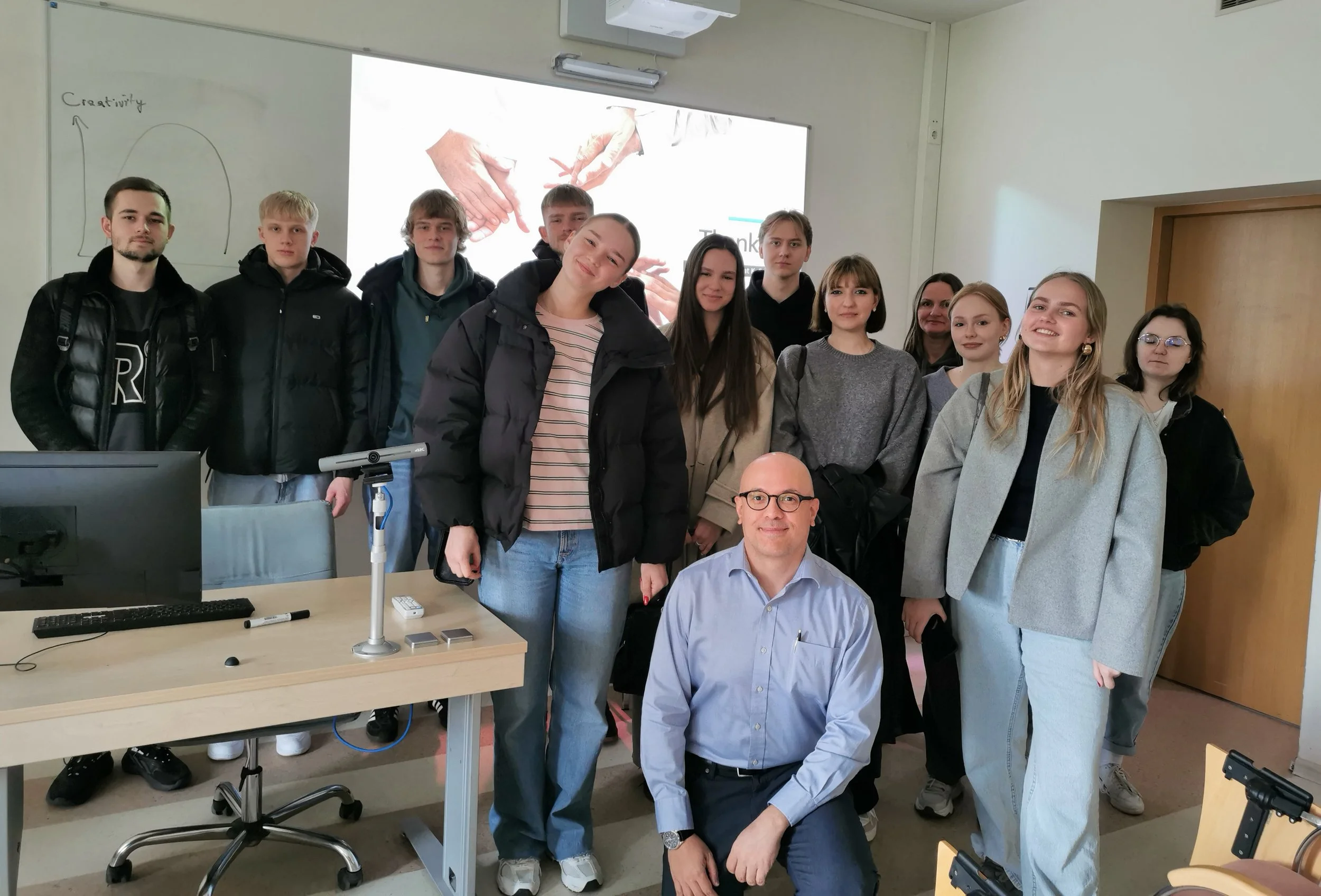The University of the Arctic (UArctic) is pleased to invite you to register for the 2025 UArctic Webinar Series, designed to explore key issues affecting the Arctic and Northern communities. As a network of universities, colleges, research institutes, and other organizations UArctic supports collaboration for education and research in and about the North. This Webinar Series will bring together experts, researchers, and community leaders to discuss leadership, education, economic development, and health in the Arctic.
Webinar Series Schedule:
Youth Leadership in the Arctic – [REGISTER HERE]
📅 March 5, 2025 | 🕑 2:00 PM NST
· The role of youth in Arctic governance, climate action, and cultural preservation.
· Challenges and opportunities for young leaders in the North.
· Success stories of youth-led initiatives.
Moderator: Laura Bass, Memorial University (Climate Collective)
Panelists: Taya Tootoo, Executive Director at the Arctic Children and Youth Foundation
Linda Kristiansen, Professional in Indigenous Affairs at the Arctic Circle Secretariat, and Student Representant at the UArctic Board.
Viljo Vuorimäki, Chair of the LYY - The Student Union of the University of Lapland, Member of the Norwegian Chairship Youth Committee, and UArctic Board Member.
Decolonizing Education and Policy in Canada – [REGISTER HERE]
Moderator and Panelists TBD
📅 May 7, 2025 | 🕑 2:00 PM NST
· Integrating Indigenous knowledge and perspectives into education and policymaking.
· Addressing colonial legacies in the education system.
· Examples of successful decolonization efforts in Canada.
Arctic Economy and Business Development – [REGISTER HERE]
Moderator and Panelists TBD
📅 August 13, 2025 | 🕑 2:00 PM NST
· Economic opportunities and challenges in the Arctic.
· Supporting Indigenous-led businesses and entrepreneurship.
· Sustainable development strategies for Arctic industries.
Arctic Health and Well-Being – [REGISTER HERE]
Moderator and Panelists TBD
📅 October 22, 2025 | 🕑 2:00 PM NST
· Addressing healthcare access challenges in remote Arctic communities.
· How environmental changes affect food security, water quality, and disease patterns.
· Culturally relevant mental health and wellness initiatives.






























